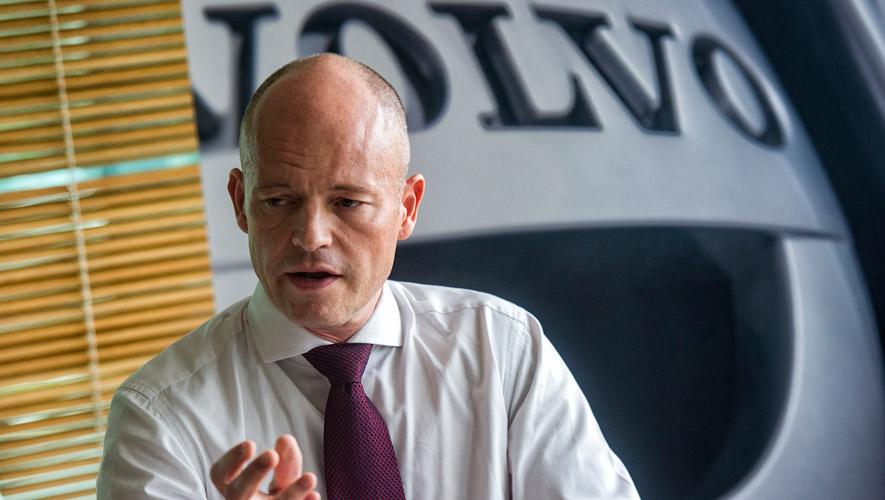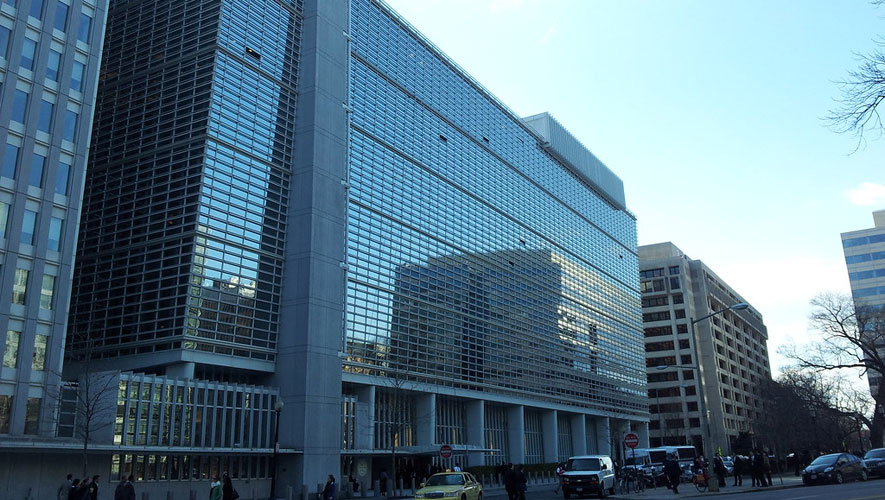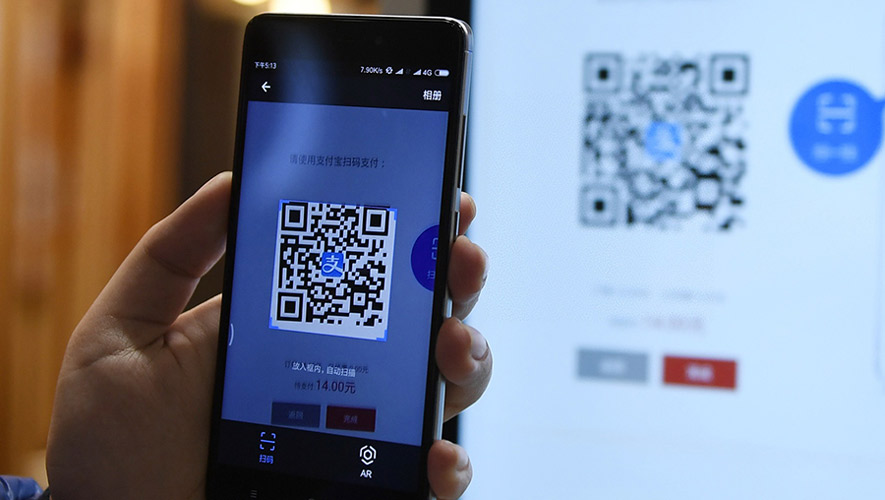The efforts create value for society at large, says President Mats Nilsson
For the latest Cambodian Business news, visit Khmer Times Business
Known as the human-centric truck company, Volvo Cambodia practices its corporate social responsibility (CSR) as a commitment to conduct business in a responsible manner, to take stakeholders’ perspectives into account and to create value for its business and society.
The approach is visualised as a pyramid, symbolising the need to build upon a broad yet solid foundation of responsible and sustainable behaviour in order to create and share value and reach its ultimate goal of becoming the world leader in sustainable transport solutions.
Capital Cambodia recently interviewed president and managing director with responsibility for group trucks sales operations in Cambodia, Singapore and Brunei Mats Nilsson, who believes CSR exercises for the group are closely related to people.
“Our core values are based on quality, safety and environmental care — these are the important parts of our overall responsibility.
“We realised these by interacting with society about vehicle safety guidelines on the road especially trucks, and to provide a safe, clean and good environment,” he says at Volvo’s headquarters in Malaysia.
Nilsson elaborates on the group’s CSR initiatives:
Q: What is the company’s philosophy when it comes to CSR? Give us some details on the reason behind the company’s push to assist people with the CSR programme, and what are the type of programmes the company supports?
A: As a human-centric truck company, we are a brand for people who care about other people and the world we live in. This is the core of our business. Our CSR approach is towards sustainability in economic perspective, and also environmental and social.
Our commitment is about re-thinking sustainability, and going beyond our operations and trucks, and into the society.
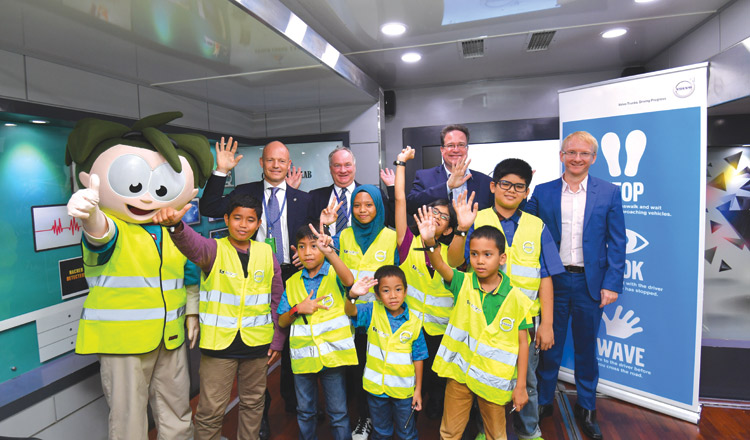
It makes us think again every time we make decisions that affect the world and the lives of people. There is a Swedish word that means “caring” and “consideration” but importantly “think again“.
This word is “omtanke” and summarises our way of protecting what’s important to you. Omtanke is the name of our new programme of sustainability commitments.
This year, we have a few programmes in the pipeline in Cambodia by adapting global initiatives. One of the major initiatives is “Stop, Look, Wave” Campaign — mainly targeted at children so they can “interact” with our vehicles and trucks. The other one is The Bario AgroBio project in Sarawak.
We teach them how to interact with the trucks and how to understand the constraints as well as difficulties faced by truck drivers.
We have reached 80 schools or some 21,000 children throughout Malaysia.
Q: Does Volvo Truck have a CSR section where the public or non-governmental organisations (NGOs) can approach the company to fund their programmes?
A: Currently, the marketing and communications, and human resource departments are spearheading all the CSR projects and they are welcome to approach us depending on the criteria proposed.
At Volvo Malaysia, we take tremendous care in selecting only grassroots-built and genuine non-profit organisations that largely rely on the contribution of the society benefitting from our annual charity event.
Q: Is Volvo Truck’s CSR programme part of the company’s leadership philosophy? Can you explain what philosophy does the company practice, and how does this motivate your staff in pushing forward the CSR agenda?
A: We incorporate our core values into everything we do in Volvo and we engage our employees in our CSR initiatives in every way.
We want to give back to the community and as a leader, I want my staff to be motivated and serve a bigger purpose by doing things together, even up to the management level.
Last year, Volvo Malaysia received some funds from Volvo’s Head Office in Sweden for one of our local CSR projects — The Bario AgroBio in Sarawak, which was proposed and initiated by our colleague, who is based in East Malaysia.
We received RM500, 000 ($122,795) for the purpose of helping the programme.
We have started discussions with the Kelabit people in East Malaysia and are working out some initiatives to help them. We are at an early stage now and it will be finalised by October this year.
The village Bario lies at an altitude of 3,500 feet above sea level in the north-eastern corner of Sarawak, a Kelabit territory, one of the minority indigenous tribes of Sarawak.
Our employees are encouraged to support causes close to their hearts, and share ideas on social responsibility.
Q: Do the CSR plans reach out to Cambodians at social and communal levels?
A: Yes, we at Volvo Malaysia plan to reach out to all Cambodians. At Volvo, people matter to us, as we are one of the first companies to sign the United Nations Global Compact (UNGC) policy, an initiative for businesses committed to human rights, labour, environment and anti-corruption.
Q: What is the biggest CSR programme the company has delivered so far? Give details of the biggest projects and how it aided the recipients?
A: We have done numerous CSR initiatives in the past year. In 2017, we worked on initiatives such as “The Stop, Wave and Look” Campaign, where we partnered with KidZania Kuala Lumpur to create awareness on road safety by simulating actual road conditions that have an impact on large trucks.
Safety is one of Volvo Truck’s core values which we hold on to dearly. It has become part of us, our culture and brand heritage.
Volvo has a long tradition of developing products that enhance safety, and continuously invests a large amount of time and resource studying accidents, consequences, and causes.
And now, we are bringing to the classroom key safety learning and skills, as we believe in starting the young with the main targets of this campaign.
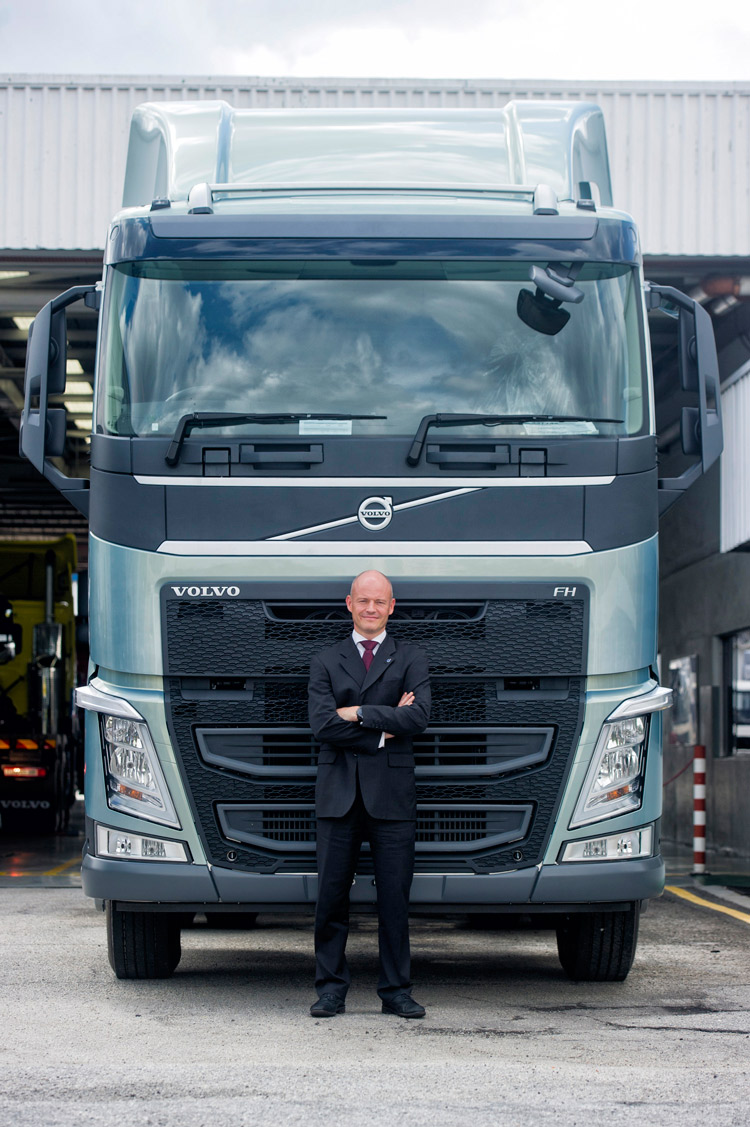
Another example is when we had our annual Volvo charity golf event which was held at Tropicana Golf and Country Club in Kuala Lumpur, where we raised a total of RM24, 000 ($5,900) for the National Autism Society of Malaysia for their daily needs.
We hope to do our part to help amplify people’s understanding and acceptance of autism, which is a lifelong developmental condition that affects, among others, the way an individual relates to his or her environment, and their interaction with other people whom they encounter daily.
Q: What are your future plans for the CSR component of the company? Can we know what is the percentage of profit the company sets aside for its CSR programmes?
A: We are unable to disclose the figure the company allocates for this segment but we will continue with our ongoing effort in educating the public about road safety through various collaborations with our partners.
Q: What does CSR mean to Volvo? How is it defined within the organisation?
A: Our CSR is a commitment to conduct business in a responsible manner, to take stakeholders perspectives into account and create value for our business and society.
Q: Do you mind sharing some of Volvo’s environmental CSR activities as it is one of the three key pillars of Volvo’s CSR activities?
A: Environmental care has been a core value for Volvo since the 1970s and it has been one of the biggest challenges we face. However, as a result of it, we at Volvo trucks are the first truck manufacturer to comprehensively test bio-DME (dimethyl ether) fuel and present a diesel engine that runs on methane gas.
Volvo trucks are not only fuel-efficient but a third of each truck is made from recycled materials. On top of that, 90 percent of the trucks can be recycled at the end of their lifespan. At Volvo, we believe we can turn this challenge into our greatest achievement.
Q: Which area of social responsibility is more significant for your company?
A: Environmental care and safety are the important part of our group as these are connected to people’s lives.
Apart from that in 1959, Volvo pioneered the three-point safety belt and felt so strongly about its importance, we chose not to patent the design.
By sharing it, we have helped save over 100 million lives to date.
Q: What do you think could be the main benefit of the adoption of measures for social responsibility?
A: The main benefit for us is helping people. If we have a cleaner environment, we will also have a sustainable society. CapCam


